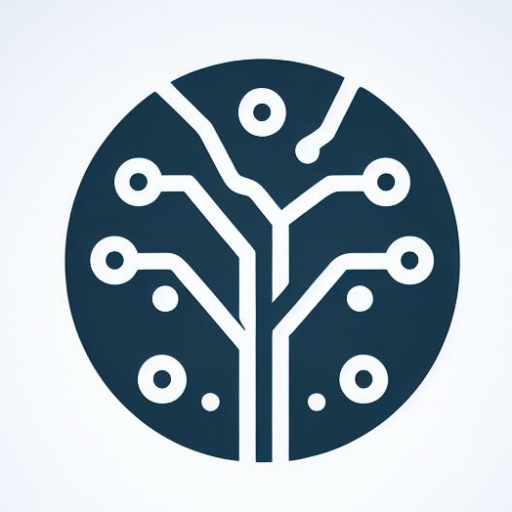Understanding AI Agents: Definitions and Perspectives
Artificial Intelligence (AI) has become an integral part of our daily lives, influencing industries from healthcare to finance and beyond. Within AI systems, one key component that often comes up is the concept of an AI agent. But what exactly is an AI agent? The term carries different meanings depending on the context in which it is used. In this article, we’ll explore various definitions of AI agents from different perspectives, shedding light on their roles and functionalities in intelligent systems.
Defining AI Agents
An AI agent can be broadly defined as a system that perceives its environment, processes data, and takes actions to achieve specific goals. Unlike traditional software programs that execute predefined instructions, AI agents can adapt, learn, and optimize their responses based on real-time interactions. However, depending on the field of study or application, AI agents are defined in various ways. Let’s explore some of these perspectives:
1. AI Agents in Computer Science
In the realm of computer science, an AI agent is commonly described as an autonomous entity capable of making decisions based on input from its environment. The classical definition from Russell and Norvig’s book Artificial Intelligence: A Modern Approach states that:
“An agent is anything that can be viewed as perceiving its environment through sensors and acting upon that environment through actuators.”
This definition highlights the fundamental nature of AI agents as systems that sense, process, and act. Agents may be simple reflex-based systems that rely on predefined rules, or intelligent agents that incorporate learning mechanisms to improve their actions over time.
2. AI Agents in Robotics
In robotics, AI agents take on a physical form. A robotic AI agent is a machine that interacts with the physical world using sensors (e.g., cameras, LiDAR) and actuators (e.g., motors, arms). These agents operate autonomously or semi-autonomously, performing tasks such as navigation, object manipulation, and human interaction.
Robotic AI agents can be categorized into:
- Reactive robots: They respond to stimuli in real-time without complex reasoning.
- Deliberative robots: These use AI algorithms to plan actions before execution.
- Hybrid robots: They combine both reactive and deliberative elements for flexibility.
Self-driving cars and robotic assistants in factories are prime examples of AI agents in this domain.
3. AI Agents in Machine Learning
In machine learning, AI agents are often modeled within reinforcement learning frameworks. A reinforcement learning agent interacts with an environment, makes decisions, and receives feedback in the form of rewards or penalties. These agents learn optimal strategies through trial and error, improving their behaviors dynamically.
For example, AI-driven game-playing agents such as DeepMind’s AlphaGo utilize reinforcement learning to master strategic games. These agents develop complex decision-making strategies that surpass human capabilities in certain tasks.
4. AI Agents in Business and Automation
Within the business and automation sectors, AI agents function as chatbots, virtual assistants, and decision-support systems that enhance efficiency and productivity. Companies leverage AI agents to automate repetitive tasks, provide customer support, and facilitate decision-making.
Popular business-oriented AI agents include:
- Conversational AI agents (e.g., Microsoft Copilot, Google Assistant)
- Process automation bots (e.g., robotic process automation for data entry)
- Predictive analytics agents (e.g., AI-powered financial forecasting systems)
These agents utilize natural language processing (NLP) and predictive modeling to assist users in making informed decisions. For example, to help you integrate and deploy AI you can ask your question to Captain Aii.
5. AI Agents in Philosophy and Ethics
From an ethical standpoint, AI agents raise questions about autonomy, moral responsibility, and human impact. Philosophers debate the ethical implications of AI decision-making in sensitive areas such as healthcare and law.
Key concerns surrounding AI agents include:
- Bias and fairness: AI agents should make equitable decisions without discrimination.
- Transparency: Their decision-making processes should be explainable.
- Accountability: Developers must ensure responsible AI deployment.
Ethical AI development is crucial to prevent unintended consequences and ensure AI agents serve humanity in beneficial ways.
Conclusion
The definition of AI agents varies depending on the context in which they are discussed. In computer science, they are intelligent systems that perceive and act. In robotics, they physically interact with the world. In machine learning, they adapt and optimize behaviors. In business, they streamline operations. And in philosophy, they raise ethical considerations.
As AI continues to evolve, AI agents will become even more sophisticated, shaping industries and everyday experiences in ways we have yet to fully understand. The challenge moving forward is not just technological advancement, but ensuring that AI agents are designed with fairness, transparency, and ethical considerations in mind.
Need more information on how to use AI Agent in your organization Contact us.




Leave a Reply